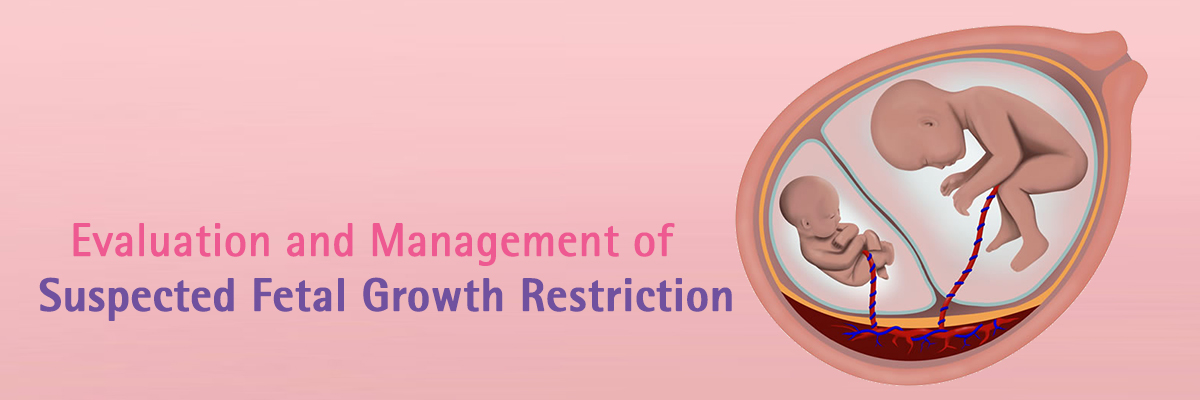
 IJCP Editorial Team
IJCP Editorial Team
Evaluation and Management of Suspected Fetal Growth Restriction
Placental insufficiency can lead to impaired fetal growth and can impose adverse perinatal outcomes. Interventions to alter these pathophysiologic outcomes are lacking. Fetal growth restriction (FGR) is diagnosed when the fetus shows clinical signs of malnourishment and/or hypoxia due to placental insufficiency. In early-onset FGR, the obstetric challenge lies in the timing of delivery, whereas in late-onset FGR, the diagnosis itself is difficult.
Thus, monitoring in early-onset FGR is advocated for optimizing the timing of iatrogenic preterm delivery. Cardiotocography and Doppler ultrasound can be used for this purpose. On the other hand, identifying the fetus at risk for immediate hypoxia and those who may benefit from an early delivery remain challenging in cases with late-onset FGR. The available investigative markers correlate inaccurately and fail to define the outcomes.
Further studies are necessary to determine how to best assimilate different monitoring variables and other prognostic markers in risk models (estimated fetal size with markers of placental insufficiency) to strategize individual treatment plans.
Source: Obstetrics and Gynecology Clinics of North America. 2021 Jun;48(2):371-385. doi: 10.1016/j.ogc.2021.02.007.

IJCP Editorial Team
Comprising seasoned professionals and experts from the medical field, the IJCP editorial team is dedicated to delivering timely and accurate content and thriving to provide attention-grabbing information for the readers. What sets them apart are their diverse expertise, spanning academia, research, and clinical practice, and their dedication to upholding the highest standards of quality and integrity. With a wealth of experience and a commitment to excellence, the IJCP editorial team strives to provide valuable perspectives, the latest trends, and in-depth analyses across various medical domains, all in a way that keeps you interested and engaged.























Please login to comment on this article